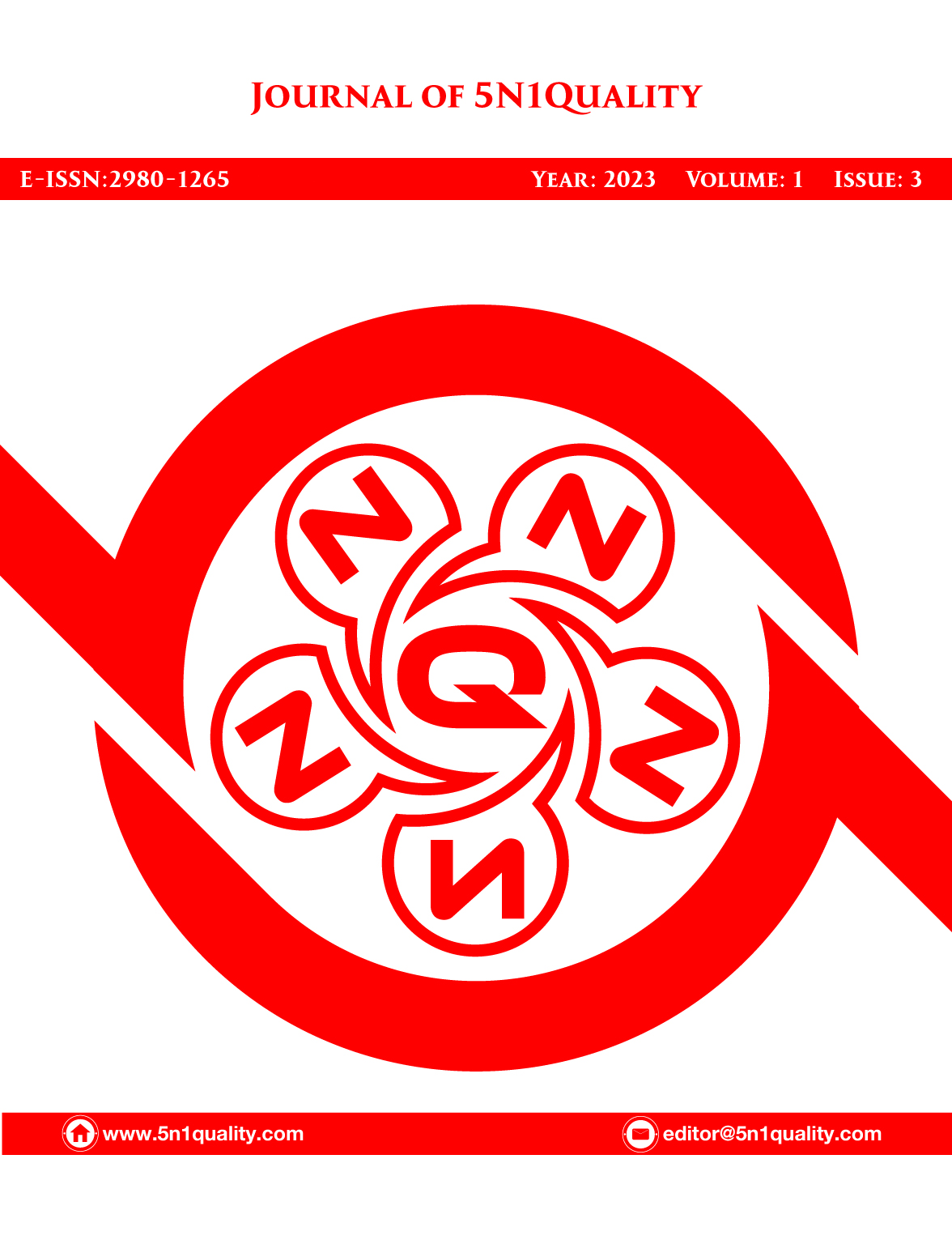The Levels of Hopelessness and Self-Esteem in Students of the Faculty of Health Sciences Who Experienced an Earthquake: Results of the Acute Phase
Acute Period Consequences of The Earthquake
DOI:
https://doi.org/10.5281/zenodo.10302448Keywords:
Earthquake, hopelessness, self-esteem, studentAbstract
This study aimed to determine the levels of hopelessness and self-esteem among students studying in the Faculty of Health Sciences who experienced an earthquake. This descriptive study was conducted with students from a university in Türkiye who experienced an earthquake between April and May 2023. The study included 184 voluntary students who met the study criteria. Data were collected using a questionnaire that assessed the students' socio-demographic characteristics, the Rosenberg Self-Esteem Scale (RSES), and the Beck Hopelessness Scale (BHS). Frequency, percentage, mean, t-test, and ANOVA were used for data analysis, and Pearson correlation analysis was performed to determine the relationship between the scales. A significance level of p <0.05 and a 95% confidence level were considered. It was observed that the self-esteem and hopelessness levels of the students who experienced the earthquake were not influenced by socio-demographic factors or their earthquake experiences (p> 0.05). Furthermore, a moderate positive correlation was found between the students' RSES scores and BHS scores (r = 0.148, p = 0.022). The experience of an earthquake may impact individuals' psychological well-being, emphasizing the need for supportive measures.
References
Abay, A.R., Abay-Çelik, Z.E. (2023). Problems arising after the earthquake and role of social support networks. Sociological Context, 4(1),91-100. doi:10.52108/2757-5942.4.1.7.
Altun, F. (2018). Economic and social impacts of disasters: An evaluation based on the example of Türkiye. Journal of Social Work, 2(1),1-15.
Auerbach, R.P., Alonso, J., Axinn, WG., Cuijpers, P., Ebert, D.D., and Green, J.G. (2016). Mental disorders among college students in the world health organization world mental health surveys. Psychological Medicine, 46(14),2955–2970. doi:10.1017/ S0033291716001665.
Bahadır, H., Uçku, R. (2018). Disasters in the history of the republic of Türkiye according to the international emergency database. Journal of Natural Disasters and Environment, 4(1),28-33.
Clark, K.R. (2018). Imaging earthquake-related injuries. Radiol Technol, 89(4),351-367.
Çuhadaroğlu, F. (1986). Self-esteem in adolescents. [Unpublished Specialty Thesis] Hacettepe University School of Medicine, Department of Psychiatry.
Efilti, E., Çıkılı, Y. (2017). Investigation of self-esteem and occupational self-esteem of special education department. Journal of Faculty of Education, Abant İzzet Baysal University, 17(1),99-114.
Kardaş, F., Tanhan, F. (2018). Examination of posttraumatic stress, posttraumatic growth, and levels of hopelessness in university students who experienced the Van earthquake. YYU Journal of Education Faculty, 15(1),1-36. doi:10.23891/efdyyu.2018.60.
Kuman-Tunçel, Ö. (2023). Earthquake, mass trauma, and aftermath. Archives of Neuropsychiatry, 60(2):97-98. doi: 10.29399/npa.28494.
Özdemir, O., Boysan, M., Özdemir, P.G., and Yılmaz, E. (2015). Relationships between posttraumatic stress disorder (PTSD), dissociation, quality of life, hopelessness, and suicidal ideation among earthquake survivors. Psychiatry Res, 228(3),598-605. doi: 10.1016/j.psychres.2015.05.045.
Seber, G., Dilbaz, N., Kaptanoğlu, C., and Tekin, D. (1993). Hopelessness scale: Validity and reliability. Crisis Journal, 1(3),139-142.
Şanlı-Kula, K., Saraç, T. (2017). Examination of university students' levels of hopelessness: A case of Ahi Evran university. Eskişehir Osmangazi University Journal of Social Sciences, 18(1),1-16.
Tang, W., Wang, Y., Xu, J. (2020). Post-traumatic growth among 5195 adolescents at 8.5 years after exposure to the Wenchuan earthquake: Roles of post-traumatic stress disorder and self-esteem, Journal of Health Psychology, 26(13),2450-2459. doi:10.1177/1359105320913947.
Tekin, I., Kul, D. (2023). The mediating role of self-compassion in the relationship between self-esteem and self-sabotage among university students. Ege Education Journal, 24(1),75-89.
Telli-Yamamoto, G., Altun, D. (2023). The indispensability of online learning after earthquake in Türkiye. Journal of University Research, 6(2),125-136.
Utkucu, M., Durmuş, H., Uzunca, F., and Nalbant, S. (2023). An assessment on the Gaziantep (Mw=7.7) and Elbistan (Mw=7.5) earthquakes on February 6. Sakarya: Sakarya University. 2023. https://dergipark.org.tr/tr/download/article-file/2954302. Accessed: May 18, 2023.
Wu, D., Jiang, X., Ho, K.W., Duan, L., and Zhang., W. (2014). Factors associated with self-concept in adolescent survivors of an 8.0-magnitude earthquake in China. Nurs Res, 63(4),278-88. doi: 10.1097/NNR.0000000000000045.
Yalçın, R.Ü. (2023). Examining the relationship between post-earthquake trauma symptoms, hope, and well-being. TRT Academy, 8(18):574-591. DOI: 10.37679/trta.1278289
Zhou, X., Wu, X., Zhen, R. (2018). Self-esteem and hope mediate the relations between social support and post-traumatic stress disorder and growth in adolescents following the Ya'an earthquake. Anxiety, stress, and coping, 31(1),32–45. doi:10.1080/10615806.2017.1374376.

Published
How to Cite
Issue
Section
License
Copyright (c) 2023 Journal of 5N1Quality

This work is licensed under a Creative Commons Attribution 4.0 International License.


